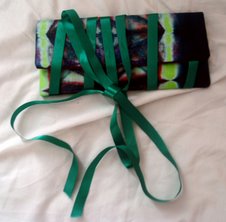Its been a while since i have done a Women's Issue Post and its not because i havent had stuff to put it...Its just been ...No comment.
Anyway, someone sent me this link ages ago and i meant to put it up...It's a quiz on What Inspiring Woman Are You? My results are below but another reason i am excited about this quiz is the fact that it appears that virtually every kind of woman (shy, outspoken, traditional, non-traditional etc) can make a change. You dont have to be radical and outspoken to move mountains. And little steps can make such a big difference in the lives of women around the world. So i urge my female readers to take this quiz and once your inspiring woman is revealed, read a little bit more about her. Who knows, you might get some ideas.
My results:
Congratulations!
You are Mary Wollstonecraft
Mary Wollstonecraft (1759 – 1797) was a British philosopher, often hailed as the first feminist. She wrote several novels, essays, and children's books, but is best known for A Vindication of the Rights of Woman (1792) in which she argued that women were degraded through the lack of education imposed on them by the restrictions of femininity. In line with the ideals of the Enlightenment, she fought for a society based on reason and the new concept of human rights.
As well as writing, Mary Wollstonecraft worked as a teacher, founded a school and travelled all over Europe, staying in France during the revolution. After a stormy relationship with Gilbert Imlay, with whom she had her first daughter Fanny, Wollstonecraft married the philosopher William Godwin. They had a daughter together: Mary Shelley, the author of Frankenstein. Mary Wollstonecraft died of puerperal fever shortly after the birth, but left a legacy of feminism that has changed the world.
Monday, November 05, 2007
Subscribe to:
Post Comments (Atom)











3 comments:
I am Millicent Garrett Fawcet
Millicent Garrett Fawcett (1847 – 1929) was a writer and political campaigner who worked tirelessly to gain the vote for women. Millicent gained valuable experience of the political world by acting as secretary for her blind husband, Radical MP Henry Fawcett. She brought this knowledge and her excellent organisational skills to bear on the London Suffrage Committee in the 1860s, and soon emerged as one of the leaders of the suffrage movement, being elected president of the National Union of Women's Suffrage Societies (NUWSS) in 1897. In this role she also helped Josephine Butler in her campaign against white slavery and supported Clementina Black and her attempts to secure legal protection for low paid women workers.
Although she admired the courage of the suffragettes, Millicent was committed to constitutional reform as the way to secure votes for women. Suffrage was finally granted to women over the age of 30 in 1918. Millicent Fawcett died in 1929, the NUWSS became the London and National Society for Women’s Service and in 1953 it was renamed the Fawcett Society in her honour.
sorry for the long comment... ma binu.. my way of saving it! :-)
me too... I was Mary Wollstonecraft.
ain't that something?
I'm Virginia Woolf
Virginia Woolf (1882 – 1941) was a British novelist and essayist, often regarded as one of the greatest authors of the 20th century. Although Woolf didn’t describe herself as a feminist, her essays “A Room of One’s Own” and “Three Guineas” boldly challenged accepted notions of women’s place in cultural life.
“A Room of One’s Own” examines the obstacles that women writers face: the title comes from Woolf's assertion that to be a successful writer, a woman needed space of her own in which to work, free of domestic entanglements, and enough money to support herself. “Three Guineas” savages women’s exclusion from education and professional work. Both essays are characteristically entertaining and ironic. Woolf’s fiction also challenged male dominance in art by rejecting the masculine Edwardian realist mode, exploring new narrative structures and highlighting women’s experience.
Although Woolf was plagued throughout her life by severe depression (she was even briefly institutionalised) and committed suicide in 1941, her marvellous talent as a writer has inspired millions of women.
Post a Comment